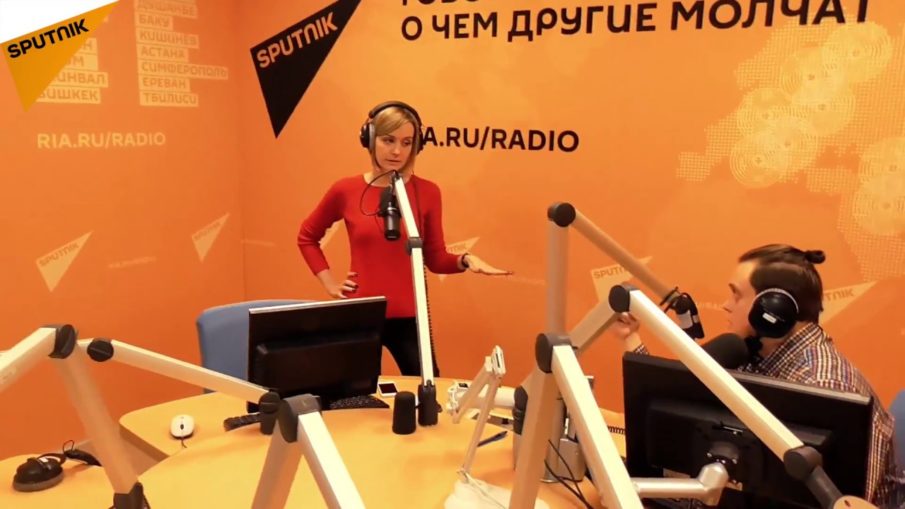Golden showers, hookers, and Trump are the latest talk of the day, and no, it isn’t a 4chan prank, but an intelligence report from a former MI6 intelligence officer-turned private intelligence contractor. Now, we must make an important distinction that, just because the report was compiled by a former intelligence officer, this does not make any bit of it any more true. The sources are still being vetted and the sum total of information is still in question. As given that his sources are Russians, you can never be sure; as they don’t normally shy away from saturating the information cycle with any narrative you can imagine.
The most common explanation for this is, of course, that they are trying to promote politicians with a pro-Russian stance or to weaken the European Union in order to ensure more room for maneuvering in what the Kremlin considers its traditional sphere of influence.
Another possible goal might be undermining the Western world as a whole, creating chaos and confusion, and generating conflicting opinions in the public. Think of this as an information warfare DDoS attack. This point becomes more evident when reading the research published by the Swedish Institute of International Affairs, in a report titled “Russia’s strategy for influence through public diplomacy and active measures: the Swedish case,” authored by Martin Kragh and Sebastian Åsberg.
The report examines the Russian propaganda machine and its meddling in Swedish affairs. But despite the report’s focus on Sweden, it provides a perspective valuable to a wider audience and showcases the techniques Russians employ in order to influence decision-makers and shape public opinion.
Historically, Sweden does not have the best relations with its big neighbor in any of its political forms, from Tsarist Russia to the USSR to, now, the Russian Federation. Sweden is not part of NATO, but it has signed agreements that make Russia uneasy. In September 2014, for example, Sweden signed a host country agreement with the military alliance that allows NATO forces to be deployed in Sweden for training, and NATO member forces to be deployed in Sweden in case of a threat to its national security. It was that move and the Crimea annexation that kicked into high gear the Russian disinformation machine targeting Sweden. Given Russia’s ongoing campaign in Ukraine and what seems like the strengthening of ties between NATO and Sweden, the Russian government is facing a crisis: They could potentially have a full-fledged NATO member in their backyard. They’ve responded to that pressure by trying to influence the public opinion inside Sweden in their favor.
To that end, they have launched a Swedish version of the Sputnik website. The research authors dug through the site’s 4,000 published articles to find that the most common theme among them was the proclamation that the West was in crisis and the European Union was on the verge of breaking apart. They also emphasized the notion of Western aggressiveness, portraying NATO as the main instigator. Here we need to make an important distinction: These stories were not outright fabrications. Most cases took on a legitimate story and spun it until it had a pro-Russian lean. The Swedish researchers identified some outright fake new stories too, but they were the minority. Those fabrications, however, have their own value in such a campaign. These shape opinions, and they persist in the public discourse for years, even after being proved false. One such example of a Russian fabrication that has not gone away are the Protocols of the Elders of Zion, a text fabricated by Okhrana, the Tsarist secret service. The text is still considered true in the public subconscious despite the obvious
Kragh and Åsberg identify 26 cases of outright forgery in their research, and one of those shows us how exactly disinformation works. It was supposedly a letter from Ukraine asking a Swedish prosecutor to not persecute a Swedish national for war crimes in Ukraine while he was there as a volunteer. That particular case was thrown in the water not to hurt Sweden’s public image, but Ukraine’s, making it appear as though the Ukrainian resistance deems war crimes acceptable. Another interesting case suggested NATO and Sweden supposedly conspired to send arms to Daesh through Turkey.
As specific as these examples may be, they show that, if Russia is willing to go to such lengths to influence the public opinion in a country as small as Sweden, anyone who is on the front line of the global stage should really watch out. But more than anything else, this is clear evidence of an information war being waged, wherein the greatest casualty is the truth.
Featured image courtesy of ytimg.com
Already have an account? Sign In
Two ways to continue to read this article.
Subscribe
$1.99
every 4 weeks
- Unlimited access to all articles
- Support independent journalism
- Ad-free reading experience
Subscribe Now
Recurring Monthly. Cancel Anytime.











COMMENTS